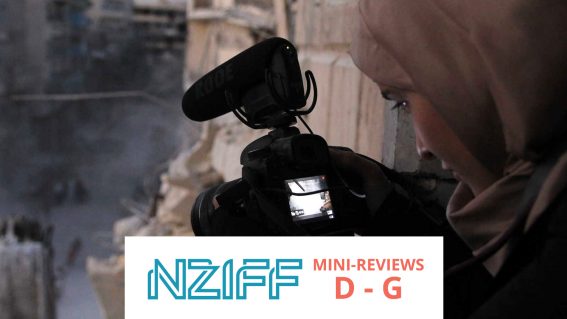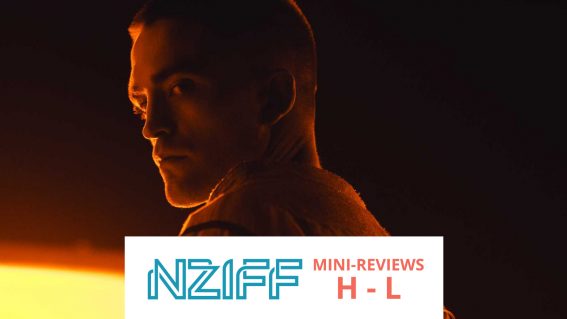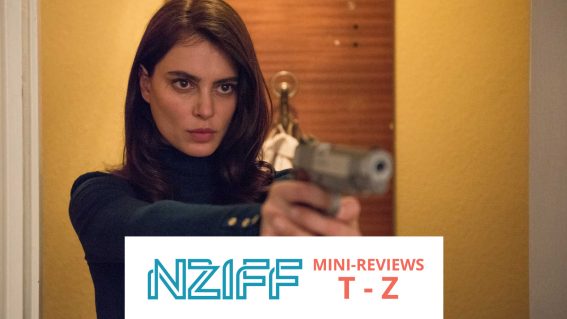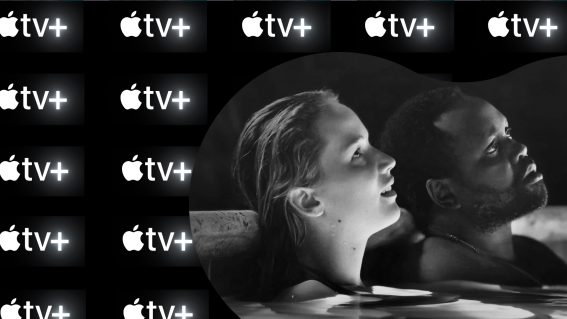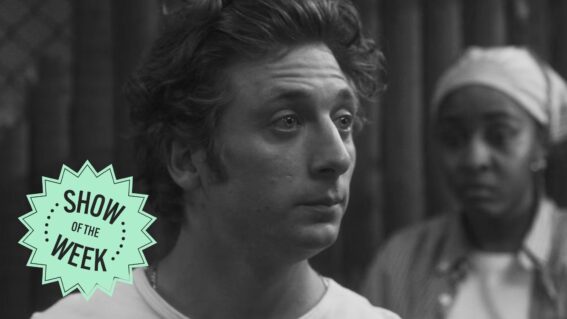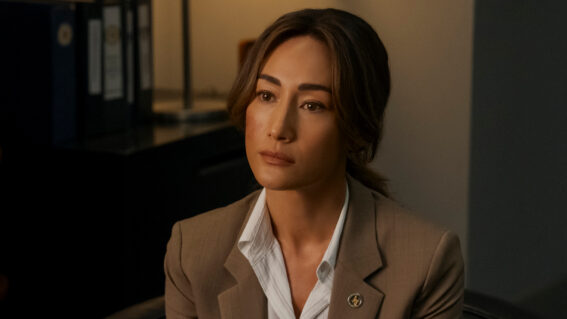NZIFF 2019 mini-reviews (M – S)
Our thoughts on all the films we’re seeing at NZIFF.
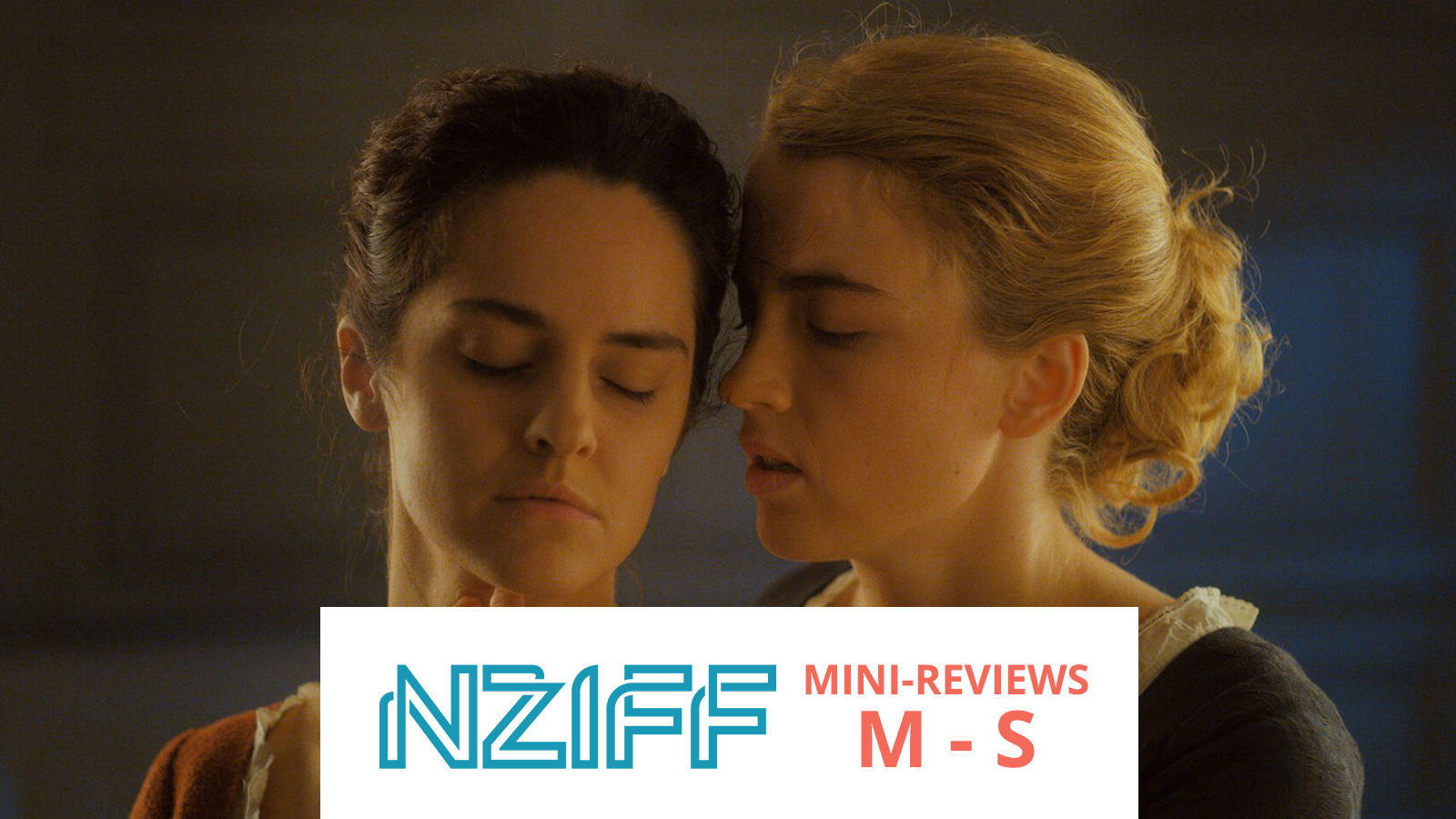
Our team of writers are submerged in NZIFF 2019—here are their thoughts on the films they’ve seen titled from M to S.
Making Waves: The Art of Cinematic Sound
This is a captivating crash course on the history of sound in movies that will appeal to subject newbies and aficionados alike. With literally every big name in sound and cinema popping up as a talking head, plus carefully chosen clips from their various films dispersed throughout, the doco manages to be very informative without getting too bogged down in the details. Ultimately it feels like a big love letter to the magic of movie sound. Very nerdy, very fun. -RACHEL ASHBY
A dutifully dense yet beautifully brief For Dummies doco that does absolutely nothing new in terms of documentary filmmaking but who the hell cares. In just under 100 minutes, the film fills you with the history, components and technology behind this underappreciated artform. A must for film nerds who shamefully don’t know the difference between Sound Mix and Sound Design. -LIAM MAGUREN
Manta Ray
I know I’m in the minority here, but everyone who thought Long Day’s Journey Into Night was praiseworthy must have missed the chance to see what a poetic dreamlike vision can yield when married to content of actual substance. First-time Thai director Phuttiphong Aroonpheng (the regular DoP of fest fave Apichatpong Weerasethakul) manages to combine a sensitive delicacy with an unflinching examination of Thai complicity in the Rohingya genocide. It may not have an hour-long 3-D tracking shot—in fact, some of its most stunning moments come thanks to the deployment of fairy lights—but by dramatising kindness instead of leaning on cliche, Manta Ray transcended its budget and become the visionary highlight of my festival. -DOUG DILLAMAN
Martha: A Picture Story
Everyone loves an unknown legend, especially a living one, and the story of Martha Cooper—photographer and champion of New York street art—is compelling and endearing. It’s really satisfying to watch someone who was fairly unknown in early career finally have her moment in the sun thanks to the internet and the publication of a couple of hard won books. However the story is more about Cooper reconnecting with the street culture communities she has inspired than it is a tale of ‘undiscovered artist thrust into spotlight’ (à la Finding Vivian Maier, for example). I was grinning when the credits rolled. -RACHEL ASHBY
A lively, vacuum-packed slab of humble history that shows how the simple act of giving a shit can literally change the world. It’s both a portrait of one dope woman, whose photography and curiosity cemented a cultural movement, and a global look at the movement of graffiti art. It’s an absolute gem that essentially gifts you two features for the running time of one. -LIAM MAGUREN
Meeting Gorbachev
Let’s face it, watching Werner Herzog talk to anyone in a documentary is a good time. Here he sits down for a few sessions with the elderly former leader of the Soviet Union, and while Gorbachev is advancing in years, the two both bring their gift for connecting with others to the table. As well as conversational footage, Herzog also traces Gorbachev’s history, fascinating as a collection of facts, and bolstered further by many Herzog observations of what we’re seeing. Must have got some dust in my eyes when the topic of Gorbachev’s deceased wife came up. -STEVE NEWALL
mid90s
A flashback to a time you’re just trying to fit in, learn the rules of a new group of friends, how to smoke and maybe even skate…Jonah Hill’s directorial debut is nostalgic without endlessly overtly shoving references in your face, deceptively effortless-feeling in its depiction of a 13-year-old falling in with a group of older teen skaters. A believable constructed time machine of a film, shot on 16mm in 4:3, blessed with a great cast and a knack for depicting both hanging out and the strife of growing up. Loved it. -STEVE NEWALL
Midsommar
Yeah. Mind officially blown. Florence Pugh’s (Lady Macbeth) performance is insanely masterful as Dani, a young woman dealing with a lot of shit. Her mentally troubled sister, her gormless boyfriend Christian, and Christian’s college mates, who dislike her for making him less fun. Unfortunately, it doesn’t get better for Dani (apart from she does get to wear The Coolest Flower Dress evah!) after they travel to Sweden for a festival on a happy clappy folk/lederhosen/quaker hybrid clothed culty commune. Under the bright nordic seemingly eternal summer sky, and the influence of herbal psychedelia, uneasy horror begins to creep. Ace costumes and production design—I’m still thinking about it. -SARAH VOON
Obnoxiously protracted, and sorely lacking any form of payoff, but Aster playing trauma anatomist in a goofier register? Yeah, I wasn’t bored. -AARON YAP
Ari Aster follows the deliberate slow burn tension of Hereditary with a slow spiral into madness. Florence Pugh is utterly convincing as an already off-kilter character spinning out in a Swedish commune. Like The Wicker Man, or the more recent Apostle, creepy cults prove unsettling and darkly funny in this beautifully-shot and thoughtful meditation on mental health, paranoia and human empathy. – ADAM FRESCO
Modest Heroes: Ponoc Short Films Theatre, Volume 1
Sure is modest. 60 minutes. Three animated shorts. Two of them OKish: one’s an underwater Arrietty with art design more interesting than the plot and the tale of an invisible man has a strong start but a mild finish. The clear standout was the grounded story of a parent and her child’s food allergy, told tenderly but thoroughly, highlighting the bravery it takes to bear an ailment that most wouldn’t even take note of. A modest hero, indeed. -LIAM MAGUREN
Monrovia, Indiana
Frederick Wiseman is as reliable as they come, for better or for worse: his movies will take as long as he feels like, he will give you no narration or clear story, and he will feature many, many meetings. (Seriously, Wiseman is to meetings what Tarantino is to feet.) Monrovia, Indiana will disappoint those looking for an evisceration of red-state America in the Trump era, instead leaning on the apparently-controversial opinion that said supporters are still humans, and observing them in all their foibles. But while it’s unlikely to win Wiseman any new converts, Monrovia, Indiana is a fitting bookend to a decade documenting liberal communities and establishments, full of productive complications and quietly fascinating observations. -DOUG DILLAMAN
Mope
This is a grimy movie about two low-lives trying to make it in the grotty porn industry, never having a chance, and it all ends in a blood-soaked tragedy. Think Boogie Nights meets Pain & Gain, with a shot-on-VHS vibe, and you’re close. There are some solid comedy moments in this true story, despite how shocking and awful it all is, and some truly inspired musical choices. But overall it’s kind of just above average and not as effective, entertaining or meaningful as it could have been. -DANIEL RUTLEDGE
Mystify: Michael Hutchence
Director Richard Lowenstein knew the subject of this documentary for decades (Hutchence starred in his classic Dogs in Space), which seems to have helped him to be trusted with a wealth of personal video footage and access to family and loved ones. Kylie Minogue and Helena Christensen are among those who reminisce extensively, heard but not seen as they speak over private tapes. Not too fussed about charting the history of INXS and band achievements, the film on one hand wants us to understand the troubled, magnetic, icon, but on the other, feels sanitised in what it presents about his drug use and sexual behaviour, topics that are touched on but feel very unexplored in what should be a complete picture rather than concerned about his reputation. Worth seeing for the candid footage, though. -STEVE NEWALL
Like a friend keen to celebrate the good times, and excuse the lows, Richard Lowenstein’s documentary features some cool footage and audio interviews, but not showing interviewees’ faces robs us of their expression and emotion, and there’s way too little of the late INXS frontman’s performances to remind us why we’re here. –ADAM FRESCO
Ngā Whanaunga Māori Pasifika Shorts 2019
If you were under the impression that short films were somehow less affecting than a full-length feature, the brilliantly curated selection of stories in Ngā Whanaunga Māori Pasifika Shorts 2019 will absolutely change your mind. With themes as diverse as the Pacific Islands themselves, these selections will have you giggling one minute and bawling the next. Despite their diversity, what connects the films is a commitment to identity, a staunchness in the depiction of Māori and Pasifika realities and a sense of heart. Stand out films for me were Ani, a gently funny and moving story about a young girl coping with her mother walking out on her and her dad; and Rū, a hostage thriller so tense that I think I might have actually stopped breathing for most of it. Highly recommend. -RACHEL ASHBY
This loving curation of six short films was a like a bespoke box of chocolates, each one a treat.
Our Atoll Speaks—tells the story of Pukapuka Atoll in the Cook Islands and its gentle environmentally friendly ways that are gradually being threatened by global warming.
Ani—Poignantly and hilariously portrays both the resilience and comprehension a young girl manifests after her Mum leaves her and her Dad. Charming and heartbreaking.
Liliu—Set in the 1920s in Western Samoa, a young Court translator is enlightened by a fierce woman Chief. An affecting snapshot of colonial injustice.
Ways To See—Beautiful, eerie production, reflecting on the solitary nature of grief and a young girl’s otherworldly coping strategies.
Rū—A creeping sense of dread accompanies this beautifully paced thriller. Sickening desperation is explored with compassion.
Yellow Roses—Sweetly clever story, recognising the associated loneliness caused by memory deterioration. -SARAH VOON
A very good showcase this year. Gemma Cubero del Barrio’s Our Atoll Speaks kicked it off with a loving environmentalist look at a self-sustained Cook Islands paradise. Josephine Stewart-Te Whiu’s Ani and Jessica Sanderson’s Ways to See delivered sturdy parent-daughter dramas. Jeremiah Tauamiti’s Liliu, a courtroom drama set in 1920s NZ-occupied Samoa, could easily be a feature. Awanui Simich-Pene’s Rū offered something rarely seen in this programme—a thriller. And Yellow Roses from Paula Whetu Jones was a real straightforward charmer. -LIAM MAGUREN
The Nightingale
Director Jennifer Kent follows The Babadook with brutal horror born of harrowing history. An achingly bleak, savagely raw portrayal of colonial racism in mid-19th-century Tasmania. Channelling the revenge-Western genre, unflinching performances make for cinema of intense unease in a profoundly disturbing, emotionally shattering experience. -ADAM FRESCO
Stunningly brutal and very, very long, colonial Australia has never seemed quite as horrific as it does in Jennifer Kent’s unsparing The Nightingale. Already notorious for its scenes of rape and unflinchingly real look at the cruelty enacted on aboriginal Australians in the 19th century, The Nightingale tells a deeply compelling story—the force of which is sadly weakened by an overlong runtime and the sheer repetition of brutal sexual and racial violence which, needless to say, renders it a very hard watch. -KATIE PARKER
It’s definitely no “this year’s Zama“. Savage, timely reckoning of colonialist sins undercut by distended length and a nagging sense that it’s just a Tassie Green Book. Can’t fault efforts of Franciosi and Ganambarr. -AARON YAP
One of the rougher films to screen at the festival in the last few years, this plays like a sister film to the 2009 programme’s underrated Van Diemen’s Land. There is a lot of extremely nasty rape, abuse, murder, racism and hopelessness in The Nightingale and it’s easy for it all to feel like an assault on the audience. But it makes for a powerful, screaming statement about the horrors of British colonialism, as well as saying interesting things about revenge and indeed, the revenge genre of film. -DANIEL RUTLEDGE
All the trigger warnings in the world couldn’t prepare me for this authentically miserable slice of Australian history that exposes the darkest side of British colonialism. Aisling Francios rips her heart out with a shattering performance, Sam Claflin’s never been better as a manmade evil in uniform, and the superb Baykali Ganambarr has a golden line that succinctly sums up this horrific time and place: “White fella way is shit way.” -LIAM MAGUREN
Even being somewhat prepared for the harrow didn’t make viewing writer/director Jennifer Kent’s bleakly beautiful revenge drama The Nightingale, set in 1825 Tasmania, any less difficult. Raw, taut and dense with acts of unconscionable cruelty—the fact that it’s probably a disturbingly accurate depiction of the appalling treatment suffered by many convicts and Aboriginal people under the mantle of civilised colonisation, makes it all the more sobering. -SARAH VOON
One Child Nation
Personalising China’s population growth policy removes One Child Nation from merely abstract academics, offering an at-times emotionally gruelling account of its impact. The filmmaker having grown up with a sibling (allowed in specific circumstances, but still at odds with the barrage of state propaganda) offers an unexpected perspective to sit alongside brutal first-hand accounts of forced sterilisation, the abandonment of baby girls, and the child abduction/adoption industry. -STEVE NEWALL
PJ Harvey: A Dog Called Money
If you can get past the disaster tourism aspect of PJ Harvey touring areas of deprivation to gain inspiration for an album, there’s plenty to like about A Dog Called Money. Seeing her weave images, musical fragments and stories from afar into her work is rewarding—and thankfully not something that turns out to be wholesale nicking of other cultures. Without demystifying the songwriting process by giving away all its secrets, Seamus Murphy’s film connects footage of Harvey’s inspiration gathering/reportage to the unorthodox recording process of The Hope Six Demolition Project, allowing us to see how her experiences make it into song, and how she directs and works alongside collaborators in studio. -STEVE NEWALL
Port Authority
Danielle Lessovitz’s debut is a gender-bending LGBTQ+ love story set amidst New York’s Kiki ballroom scene. Romantic and heartfelt, featuring a stand out performance by Leyna Bloom as the enigmatic and magnetic Wye. Sparkling and sensual, the dancing, voguing, and attitude on display dazzle, in a joyfully non-binary Romeo & Juliet-inspired drama of love, life, identity, and fiery independence. -ADAM FRESCO
Portrait of a Lady on Fire
Something else. Totally emotionally immersive from the very beginning until that heartache of a final shot. I wasn’t sure anyone could match Adèle Haenel but Noémie Merlant totally came through. Best of the festival, no question. Quite possibly the best of the year. Céline Sciamma forever. -AMANDA JANE ROBINSON
Impeccable craft, sublime performances. Perhaps THE best close up of any movie this year. But I’m also troubled I wasn’t infatuated with this as much as I had hoped. A future rewatch likely. -AARON YAP
An absolute master-feast for those who hunger for visual metaphors, subtle facial tells, lavish lines of dialogue, and the soothing sight of paint strokes forming a picture (I’m talking Bob Ross-levels of euphoria). The delicate, deliberate storytelling uses these key elements to gently construct a romance that—very consciously—mimics the quality of a portrait itself. Timeless, but forever constrained, with lingering details hidden in plain sight. Sensational. -LIAM MAGUREN
The Realm
Spanish political thriller has a no-jokes Armando Ianucci vibe at times, ultra-fast paced dialogue daring you to keep up, camera freewheeling through the non-descript offices that are the seat of power and heart of corruption. As the lead character’s life is upended in a graft scandal, it’s hard to feel for him, but his tenacity and desperation to pull through are nerve-wracking stuff as the stakes escalate. Think House of Cards‘ male protagonist without his smug vileness (or the show’s absurdity). -STEVE NEWALL
Quickfire Spanish dialogue drives a tense political drama, following an ambitious rising star politician who is exposed as corrupt, and the consequent implosion of his life as he fights for both revenge and to minimise the damage. A thumping soundtrack and expertly elevated second half meant I couldn’t take my eyes off the subtitles for a moment lest I missed a beat—probably should drink black coffee and take a Spanish class before seeing this. -SARAH VOON
The River
Old/new world fissures and adolescent ritualism converge on otherworldly Kazakh plains. Part formalist slog, part haunting poem, enlivened by unexpected stretches of deadpan humour. -AARON YAP
Ruben Brandt, Collector
While the concept of an art psychotherapist stealing paintings that haunt his dreams sounds incredible, this film does a very basic job with it. Most of the heists are just montages, character designs are favoured over characteristics, and a lot of the good animation is undercut by cheaper “slidey” moments more suited to a powerpoint presentation. -LIAM MAGUREN
A Seat at the Table
The low-key threat that closes the NZIFF programme synopsis for A Seat at the Table is bang on – you are going to want to take (at least) a glass of wine in with you for this doco examining the rise of NZ’s wine industry. The historical elements are interesting, the interviews with French wine folks (and their reaction to our wine) fascinating and entertaining. Perhaps not entirely convincing as a big-screen essential, no matter how many drone shots of vineyards and landscapes are included, this is an informative, gentle watch, aided by some of the local and international personalities portrayed. -STEVE NEWALL
Sibyl
Tonally shaky, sporadically enjoyable meta-whimsy with psychodrama affectations stumbles around like Assayas on an off-day. Hüller is a hoot until she isn’t.-AARON YAP
A shrink goes off the rails in this French comic drama, haunted by the memory of intertwined volatile relationships with a beau and the bottle and abandoning professional distance with the actress who’s her new patient. There’s a lot to be interested in, with lead Virginie Efira impressing with the range of her performance, and Sibyl makes the audience fellow voyeurs as she gets too involved with the relationship dynamics on a film set. It didn’t all gel for me though, even if I loved every minute of Toni Erdmann star Sandra Hüller as a director trying to hold her film (and herself) together. -STEVE NEWALL
Sorry We Missed You
British misery porn master Ken Loach does it again, delivering another depressing snapshot of working-class life. He focuses on a family that’s had some bad luck and is now victimised with zero-hour contracts and employers who dodge employment law by categorising their employees as “contractors”. Although there are moments of kindness and joy sprinkled throughout, there’s bugger all hope in this. It’s bleak. But it’s also brilliant. And it’s the sort of thing that, hopefully, will compel viewers to vote for politicians that will legislate against letting this sort of injustice happen. -DANIEL RUTLEDGE
Colossal, affecting drama that opens the eyes as if they were wounds. Eye-opening to me, at least—a privileged moron who knew nothing about zero-hour contracts or the cruelty it inflicts on honest, everyday people. Sounds harrowing, and a lot of it is, but heart-soothing moments of family bonding and precise jabs of humour keep the 100-minute running time buoyant while cementing this film’s masterful sense of humanity. -LIAM MAGUREN
Ken Loach’s latest (last?) film is a searing indictment of zero-hours contracts aka modern feudalism. A working-class family struggles to make ends meet in a system geared against them, dad a “self-employed” courier grinding out the hours for a company for whom he’s another disposable asset; mum providing in-home nursing care. As we see stress at home compounding the emotional and financial problems, the viewer’s left with a sense of grim inevitability that’s somehow both numbing and fucking fury-inducing. -STEVE NEWALL
NZIFF 2019 mini-reviews index:






